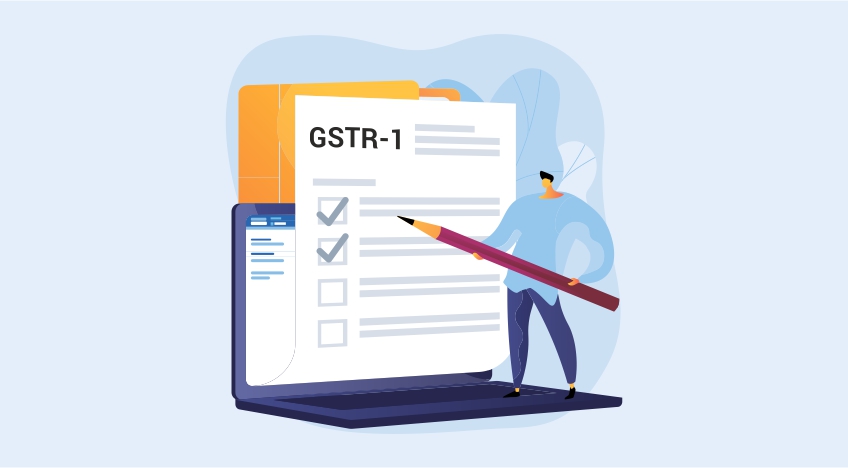GSTR-1A is a GST return form where a registered taxpayer can amend the details of outward supplies furnished in their original GSTR-1 form. It actually assists a business in correcting mistakes before the final submission of GSTR-3. The key of proper compliance with GST regulations will lie in its importance and adequate filing process.
Key Features of GSTR-1A
Rectification of Mistakes – Facilitates correction of inconsistencies in outward supply information.
Auto-filled Information – The information contained in GSTR-1A is auto-filled as per the information submitted in GSTR-2 by the buyer.
Voluntary Filing – Unlike GSTR-1, filing of GSTR-1A is not compulsory and is used only in case of changes.
Real-time Reconciliation – Helps business in accurate reporting and compliance.
When to File GSTR-1A?
GSTR-1A is applied where the recipient reports discrepancies in GSTR-2 and which need to be rectified by the supplier. It is to be filed before the date of the GSTR-3 for inclusion of corrections in the final tax liability calculation.
How to File GSTR-1A: Step by Step Procedure
GST Portal Login – Open the GSTN portal from your credentials.
Go to GSTR-1A – Select ‘Returns Dashboard’ and then select GSTR-1A.
Review Auto-populated Data – verify the changes from GSTR-2.
Accept or Reject Changes – update/accept the recommended changes based on internal records
Submit the Return – after verifications, accept GSTR-1A to final processing step.
GSTR-1A Format Break up
The return form consists of the following blocks:
GSTIN of Supplier: The unique number of GST identification.
Invoice Details: Details relating to invoices are being amended
Revised Taxable Value : adjustments to tax value.
Corrections in Tax Liability – Amendments that impact CGST, SGST, and IGST values.
Final Acceptance – The acceptance of amendments made. Save
Importance of Filing GSTR-1A
Error Correction – Prevents incorrect invoice information from affecting the tax computation.
Compliance with GST Norms – Prevents penalty for the incorrect filing of returns.
Correct ITC Claims – Ensures that the recipient’s ITC claims are accurate.
Conclusion
GSTR-1A is a critical document in the GST compliance process because through this return, taxpayers can rectify mistakes in their outward supply returns. Although it is not compulsory, filing GSTR-1A can help avoid problems at the time of reconciliation in the future. Businesses must review the GSTR-2 returns at all times to check whether changes in GSTR-1A are required.By knowing the process and format of GSTR-1A, businesses can keep proper records and remain compliant with GST regulations. Always keep up to date with GST notifications to avoid any non-compliance issues.






